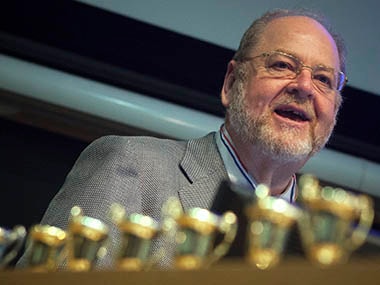Stockholm: One of this year’s Nobel Prize laureates says learning how to handle failure is key to becoming a successful scientist.
American James Rothman, who shared the medicine prize with countryman Randy Schekman and German-American Thomas Sudhof, said Friday that doing scientific research almost always means not getting the desired result.
The difference between “a great scientist and a not-so-lucky one,” Rothman, told reporters and students in Stockholm, is the former fails 99 percent of the time, and the latter 99.9 percent.
[caption id=“attachment_1272171” align=“alignleft” width=“380”]
 Yale University Professor James Rothman, 62, the co-awardee of the 2013 Nobel Prize for Medicine. Reuters[/caption]
Yale University Professor James Rothman, 62, the co-awardee of the 2013 Nobel Prize for Medicine. Reuters[/caption]
Rothman, 63, said he ended up in biochemistry after Harvard’s neuroscience program rejected him.
“Turns out I became a pretty good biochemist,” he said.
The laureates will collect the $1.2 million prize on Tuesday for discoveries on how key substances are transported within cells.
While Sudhof, 57, said he thought science was “pretty boring” in high school, Schekman developed a scientific interest at a young age and spent much of his high school years studying “pond scum” with a toy microscope. He said he brought that microscope as gift to the Nobel Museum in Stockholm.
Schekman, 64, said that after they shared the Lasker award in 2002 - often seen as a precursor to winning a Nobel Prize - he and Rothman made it an annual custom to talk after the Nobel medicine award announcement in October. As the years went by they would discuss the winners and note that once again, they weren’t among them.
“Jim’s wife called it Passover,” Schekman said. “I called it Groundhog Day.”
The Nobel Prizes are always handed out on Dec. 10, the anniversary of the death of Alfred Nobel, the Swedish industrialist who created the awards in his will. The medicine, physics, chemistry, literature and economics awards are handed out in Stockholm and the Nobel Peace Prize in Oslo.
AP
)